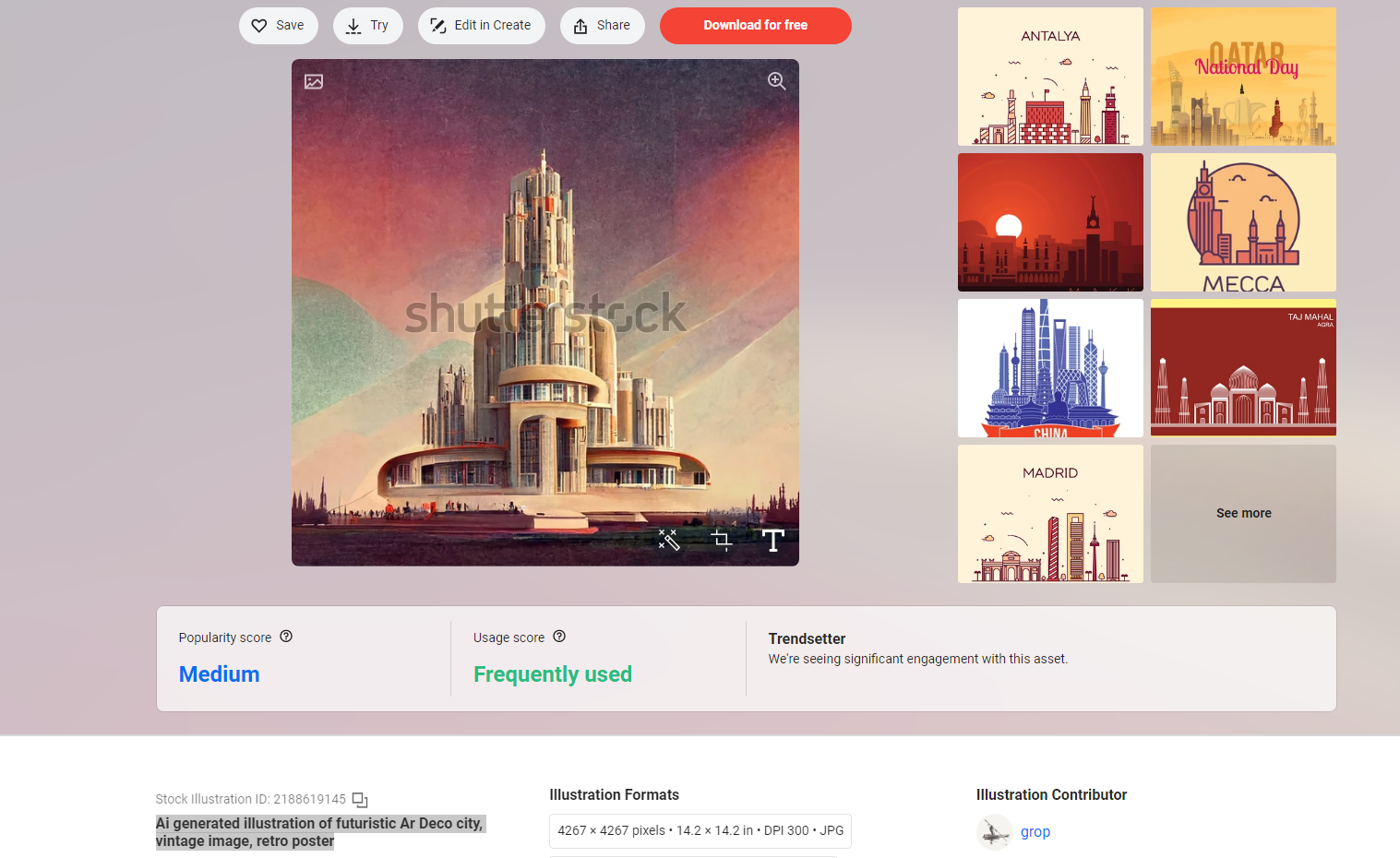Shutterstock Is Removing AI-Generated Images
September 19, 2022Well, that was inevitable.
The popularity of tools like DALL-E and Midjourney has exploded in recent months, with thousands of amateur artists using the AI systems to generate surreal images from short text prompts. Now, generated images are starting to appear for sale on stock photo websites like Shutterstock and Getty Images—and some appear to have since been removed.
On Shutterstock, searches for images tagged “Midjourney” yielded several photos with the AI tool’s unmistakable aesthetic, with many having high popularity scores and marked as “frequently used.” But late Monday, the results for “Midjourney” seem to have been reduced, leaving mainly stock photos of the tool’s logo.

Other images use tags like “AI generated”—one image, for example, is an illustration of a futuristic building with an image description reading “Ai generated illustration of futuristic Art Deco city, vintage image, retro poster.” The image is part of a collection the artist titled “Midjourney,” which has since been removed from the site. Other images marked “AI generated,” like this burning medieval castle, seem to remain up on the site.
Shutterstock and Getty Images did not respond to a request for comment.
As Ars Technica notes, neither Shutterstock nor Getty Images explicitly prohibits AI-generated images in their terms of service, and Shutterstock users typically make around 15 to 40 percent of what the company makes when it sells an image.
Some creators have not taken kindly to this trend, pointing out that these systems use massive datasets of images scraped from the web. Artist David O’Reilly recently posted on Instagram calling DALL-E a “scam” and saying that it “undermines the works of creators of all kinds, most obviously photographers, illustrators, and concept artists who shared their work online, and never asked to be included in a proprietary learning model.”
In other words, the generated works are the result of an algorithmic process which mines original art from the internet without credit or compensation to the original artists. Others have worried about the impacts on independent artists who work for commissions, since the ability for anyone to create custom generated artwork potentially means lost revenue.
The appearance of AI-generated images on stock photo websites is especially ironic, given that some of these tools mine data from stock photo websites, among other sources. While the jury is still out on whether it’s okay to profit from images that are algorithmically derived from other works, users of these tools seem to be intent on seizing the moment to make a few quick bucks.
